Political Candidate Sponcon
Date updated: November 29, 2019 [Up]Material is free to copy, use, and modify.
A recent Buzzfeed article noted that opportunities to pitch presidential candidate Cory Booker's campaign were being offered to at least one influencer.
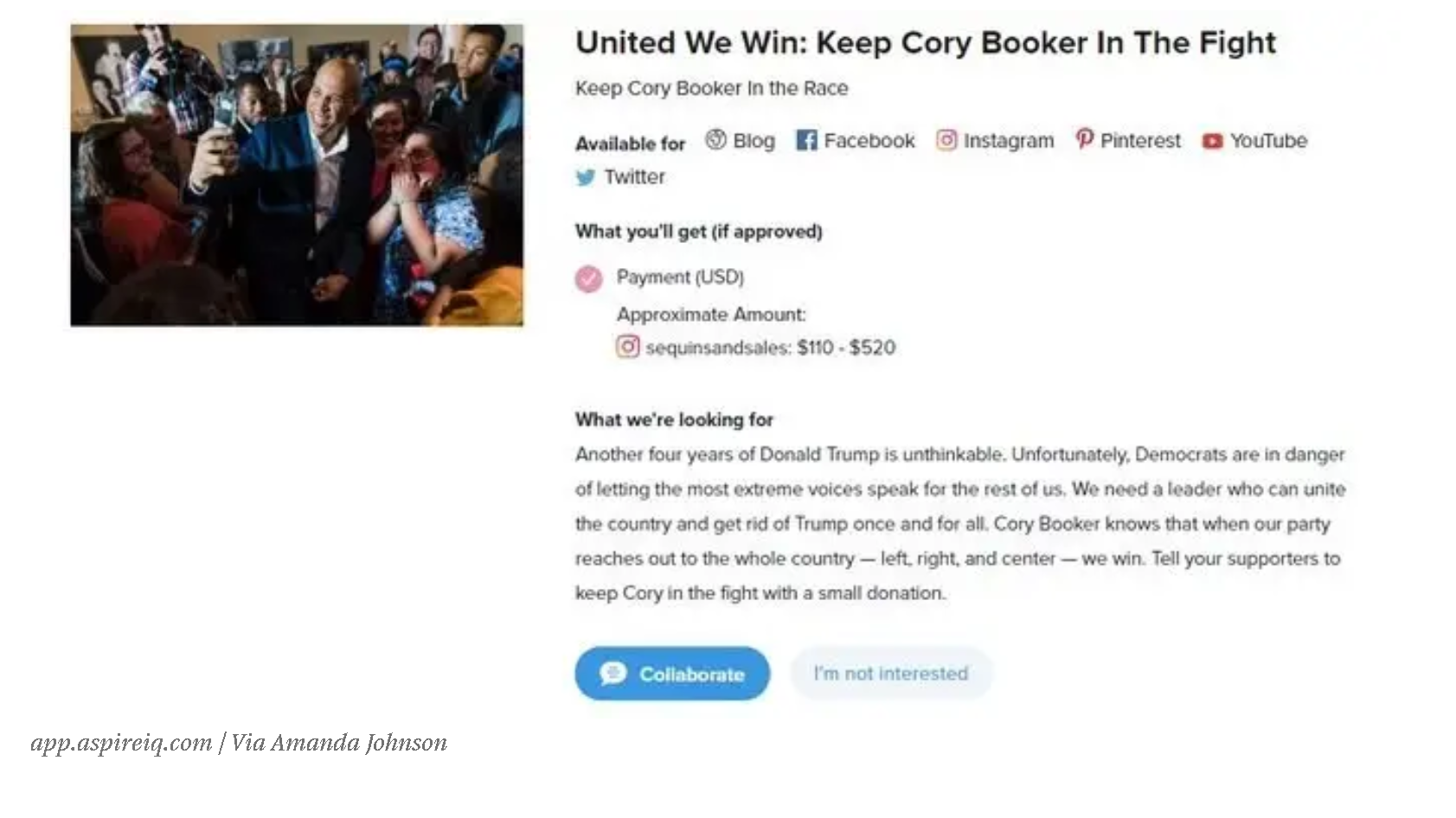
Screenshot of offer to promote Booker campaign from influencer network AspireIQ. Amount $110-$520.
As Buzzfeed notes, it's pretty common
for microbloggers to promote products ("Sponsored content", or
"sponcon"). In the past, sponsored content was a bit of a
"Wild West" of advertising, with many microbloggers not
disclosing funding for individual posts, or hiding disclosures
in a sea of hashtags.
In fact, until recently, there were few enforced rules on
sponsored posts. More recently, the FTC has put rules
into place in the U.S. that specify that such paid
content mus be clearly disclosed.
This is an example of an Olay promotion from the account that was
pitched the Booker sponcon, where the partnership with Olay is
called out in the post.
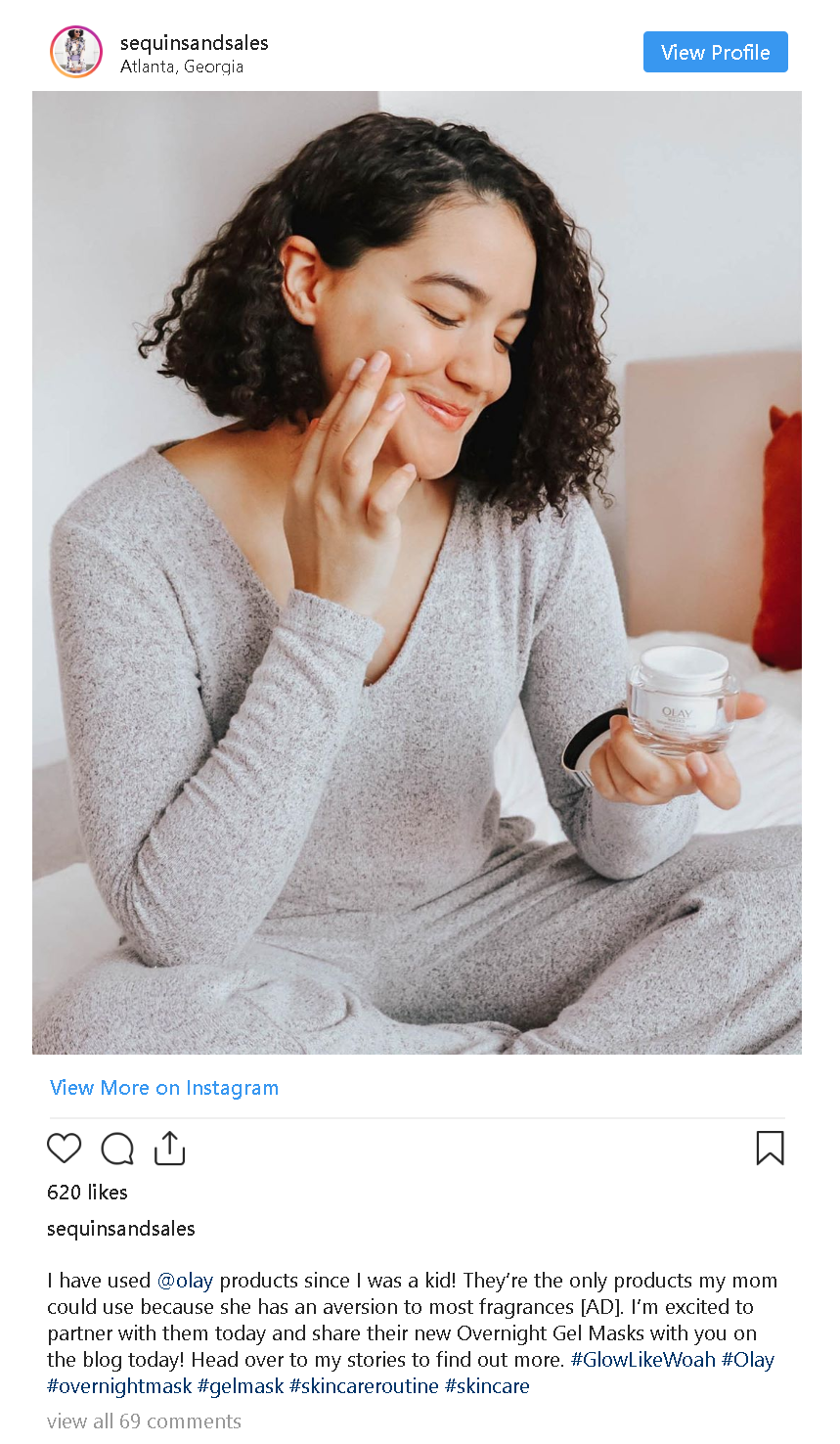
Instagram post of woman holding Olay face mask, with text indicating the new partnership.
Under the new rules, posters have to indicate clearly who paid for a post. The clearest way (currently) involves the use of the "paid partnership with" subheading. seen here on a Km Kardashian sponsored post for UberEats.
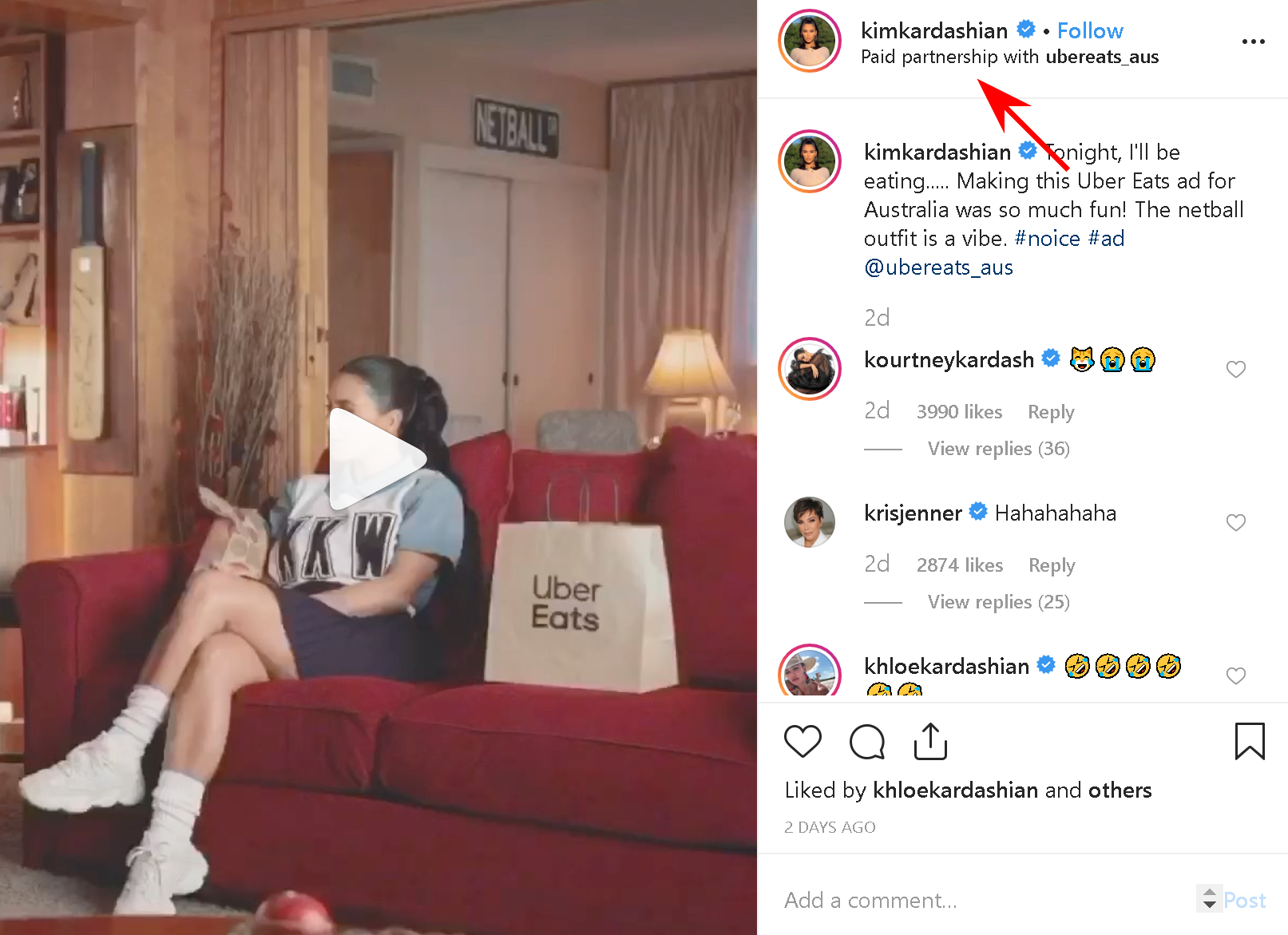
Kim Kardashian chilling with an UberEats bag. Arrow indicates the specialized partnership subhead.
Here's another, showing a paid partnership with PayPal.
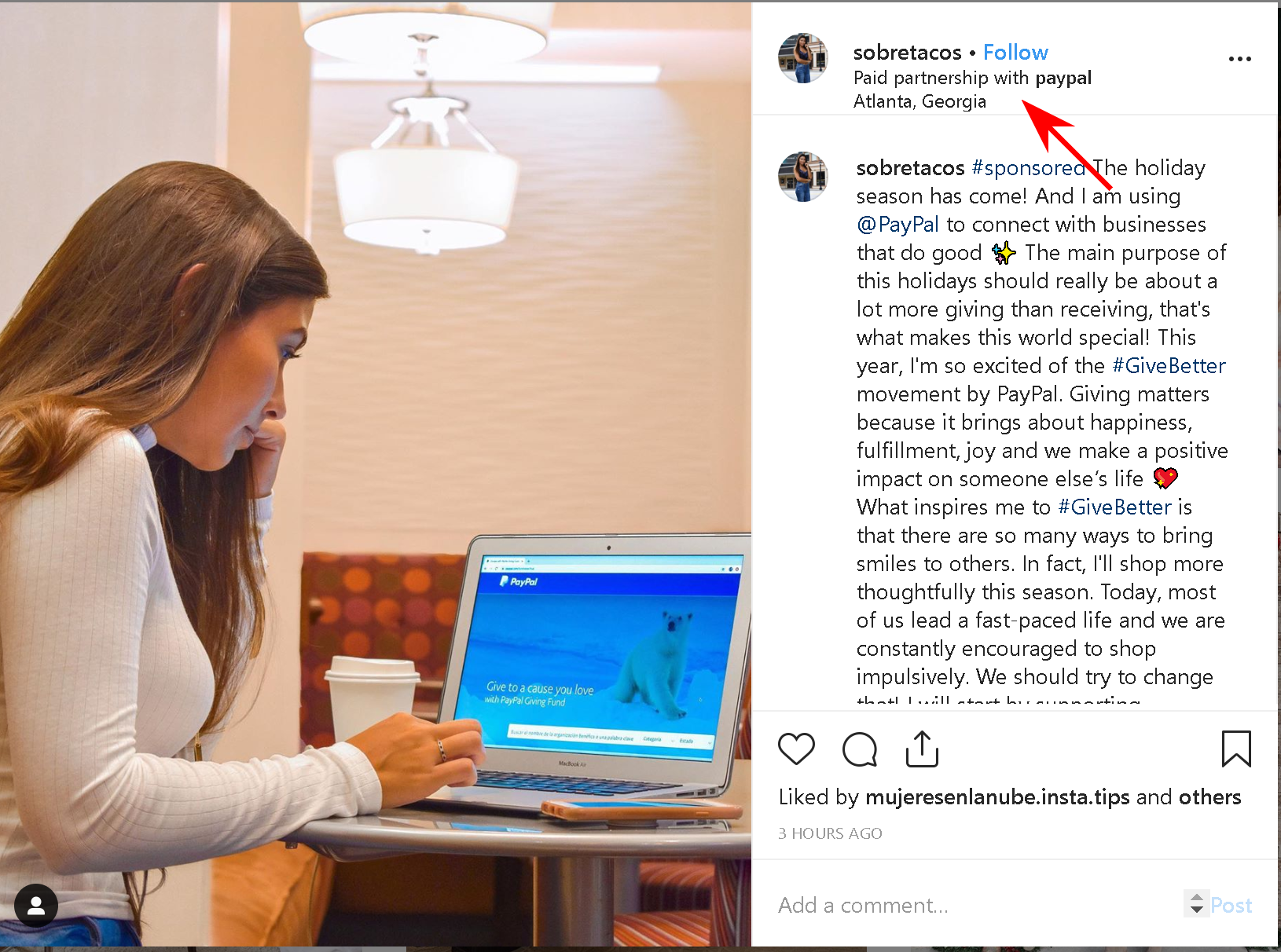
Post detailing @sobretacos's holiday love of PayPal, with a paid partnership subhead at the top. The subhead is above the location, and below the user's handle.
Many other posters use the "#sponsored" or "#ad" hashtag. According to FTC guidelines it is supposed to be obvious, and not hidden in the middle of a bunch of tags. Most influencers put it either at the end of the post, the end of the tags, or the beginning of the post.
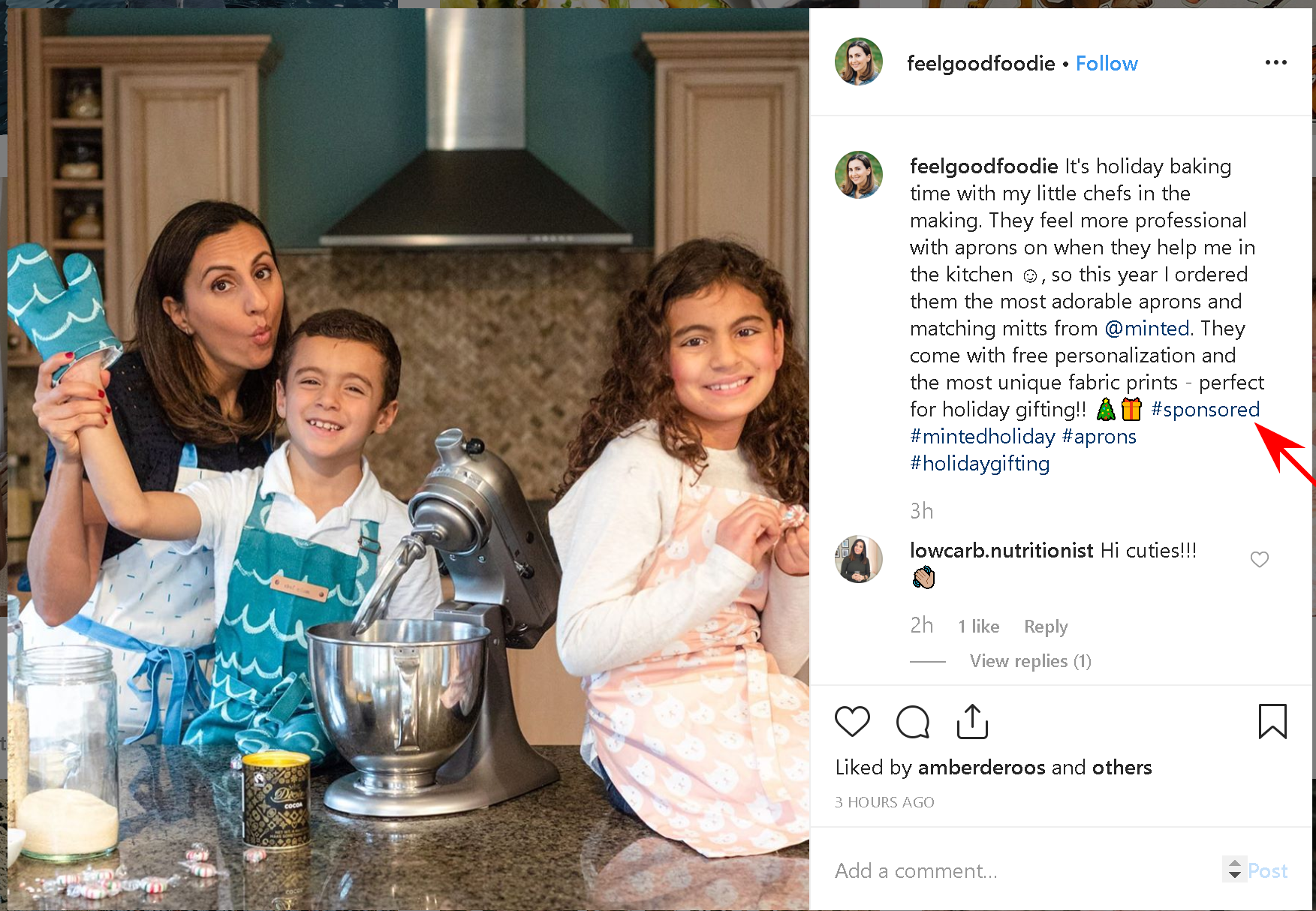
A post of @feelgoodfoodie having fun with her kids and their new oven mitts and aprons from Minted. Arrow indicated the #sponsored hashtag.
Should Politics Use Influencer Sponcon?
A brief scan of posts related to Cory Booker indicate that the Cory Booker offer was never picked up by any influeners of note. And even if it was, the offer was not associated with the Booker campaign. But it's still worth asking whether influencer-based sponsored content is something we want in politics.
To answer that question we might begin by answering another question: why do we tolerated inffuencer marketing in the first place? Or, conversely, why should influencer marketing bother us at all?
Is there any difference between paying for George Clooney -- a man who probably has a private chef in each of his houses -- to go talk about how the Nespresso coffee maker has changed his life and paying Kim Kardashian to post a private moment with an UberEats delivery bag?
If there is a difference, we can think of it in terms of the intentional blurring of context. George Clooney's ad on television is a commercial, and it occurs in a commercial break. It doesn't resemble anything that would ever occur outside of a commercial being filmed.
Kim and her UberEats bag, on the other hand, exist in a stream of other posts, many of which are not ads. It is presented with a certain authenticity, as a captured, non-staged moment. We're smart enough to know that it isn't, yet still, perhaps, we react in a different way.
One way politics might be different: if I begin to think that all people promoting UberEats are doing so because they are paid to do so, the social effects of that are not bad. But what if we start to think that the political opinions we hear from public figures are bought and paid for as well?